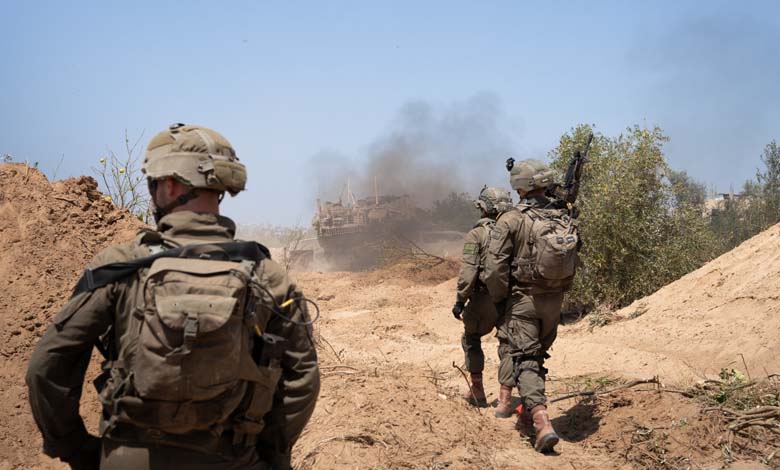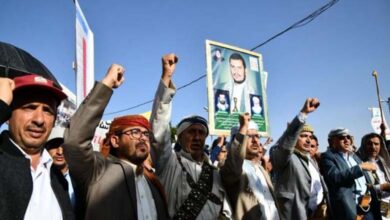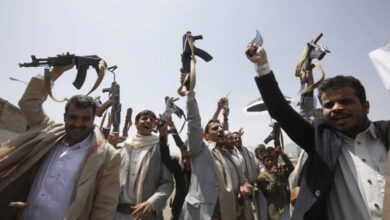Israel plans to expand its ground operations in southern Lebanon
The approval by Herzi Halevi of plans to expand the ground invasion comes despite international warnings about its consequences and at a sensitive time in ceasefire negotiations with Lebanon.

Israeli Chief of Staff Herzi Halevi approved plans on Sunday to extend the ground invasion into southern Lebanon, despite international warnings regarding the implications of such a move, according to Israeli media. This comes after reports indicating that Benjamin Netanyahu‘s government seeks to reach an agreement that will allow residents of the north to return by the end of the year.
-
Heaviest escalation between Hezbollah and Israel puts Lebanon on the brink of war
-
Crisis Between Defense Minister and Army Chief Amid Heightened Tensions Between Hezbollah and Israel
The official Israeli Broadcasting Corporation reported that thousands of regular and reserve soldiers will participate in the new plans, which involve “expanding the ground maneuver (invasion) into new areas in southern Lebanon where Hezbollah operates.” It emphasized that the goal of this move is to “reinforce military achievements” and that this development “comes at a sensitive time during negotiations for a ceasefire with Lebanon.”
Since the outbreak of the current war, many countries and organizations have warned of the consequences if Israel were to carry out a large-scale invasion of southern Lebanon.
-
Violent Clashes Between Hezbollah and Israel Amid Preparations for Total War in Southern Lebanon
-
France presents a proposal for de-escalation between Hezbollah and Israel
These reports come as the Israeli military intensifies its airstrikes on several sites in Lebanon, resulting in numerous casualties. In eastern Lebanon, at least 12 people were killed in raids on Baalbek and three others in the town of Al-Qasr, according to the Health Ministry on Sunday. In the south of the country, three paramedics from Hezbollah’s Islamic Health Organization were killed in an Israeli strike on their center in the coastal town of Aadloun.
Additionally, the Israeli military bombed the Shiite town of Alamat, located in the predominantly Christian Jbeil region north of Beirut, killing 23 people, including seven children, according to the Ministry of Health. The Ministry stated that “remains were retrieved from the site, and their identities are being verified, which suggests an increase in the number of martyrs.”
-
Washington seeks to contain the war between Hezbollah and Israel by sending an official to Beirut
-
“Sleeping Cells” in Europe and America: Hezbollah’s “Specter” of Retaliation against Israel
At the site of the attack in Alamat, images showed emergency workers searching through the rubble of the targeted house, which was reduced to ruins, while a large bulldozer worked to clear the debris. In addition to daily airstrikes, Israeli forces have been carrying out a ground offensive since September 30 on border villages and towns in southern Lebanon.
Hezbollah daily reports on Israeli casualties, with Israeli soldiers killed and wounded, as well as military vehicles destroyed in southern Lebanon. Tel Aviv has acknowledged human losses in the ground confrontations.
-
One of them was a missile system commander… Israel kills Hezbollah leaders
-
Washington Post reveals how Lebanese pay the price for Iranian threats and ongoing Hezbollah-Israel clashes
After clashes with factions in Lebanon, mainly Hezbollah, Israel launched a war on Gaza on October 7, 2023, resulting in over 146,000 Palestinians killed or injured. Since September 23, Tel Aviv has expanded its offensive to include most areas of Lebanon, including the capital Beirut, through airstrikes, and has also launched a ground invasion in the south.
The Israeli attack on Lebanon has resulted in 3,189 deaths and 14,078 injuries, including many children and women, as well as approximately 1.4 million displaced persons. Most of the victims and displaced persons were recorded after September 23, according to official Lebanese data up to Saturday evening.
-
Israel and Hezbollah: Is Confrontation Inevitable?
-
Forest Fires in Israel: What is Hezbollah’s Involvement and What are the Consequences?
Hezbollah responds daily by launching rockets, drones, and artillery shells at military sites, intelligence facilities, military gatherings, and settlements. While Israel announces some of its human and material losses, military censorship imposes strict suppression on most of the losses, according to observers.
Israel has occupied Arab lands in Lebanon, Syria, and Palestine for decades and refuses the establishment of an independent Palestinian state based on the pre-1967 war borders, with East Jerusalem as its capital.












